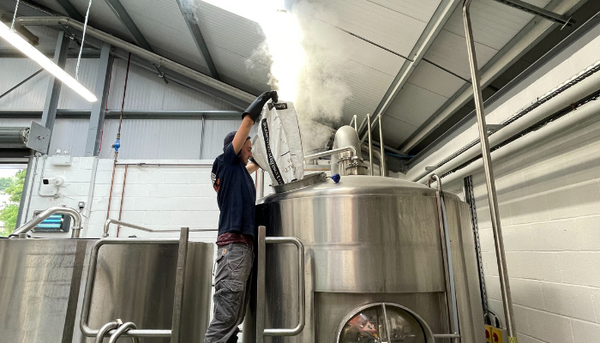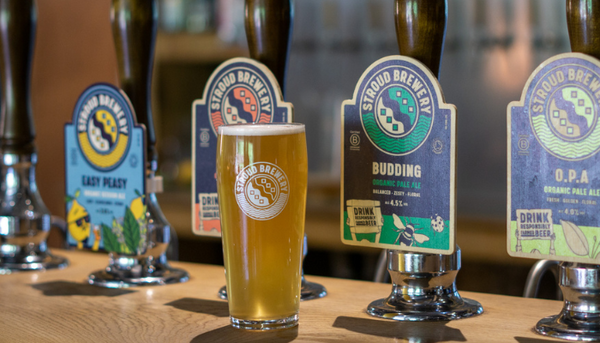WE'RE CHAMPIONING CASK BEER AS THE “GREENER” OPTION

You might be disappointed to hear that brewing beer has an impact on the environment. From growing the raw ingredients to the minute you lift the glass to your lips, there are a whole host of environmental issues that come into play: from greenhouse gases and waste to single use plastic and wildlife conservation.
Since the early days, reducing Stroud Brewery’s negative impact on the environment has been of utmost importance to us and, in 2018, we became the first UK brewery to be certified as both organic and a B Corporation. We’re constantly finding new ways to be greener in every aspect of the business – including how we make our beer (you can read our Impact Report (link) to find out more).
Between 5 and 45% of a pint of beer’s environmental footprint is affected by the amount of packaging used which, in turn, depends on how it’s stored and delivered to the drinker. There are a number of ways to do this once it’s been brewed: in bottles, in cans, in kegs or in casks.

